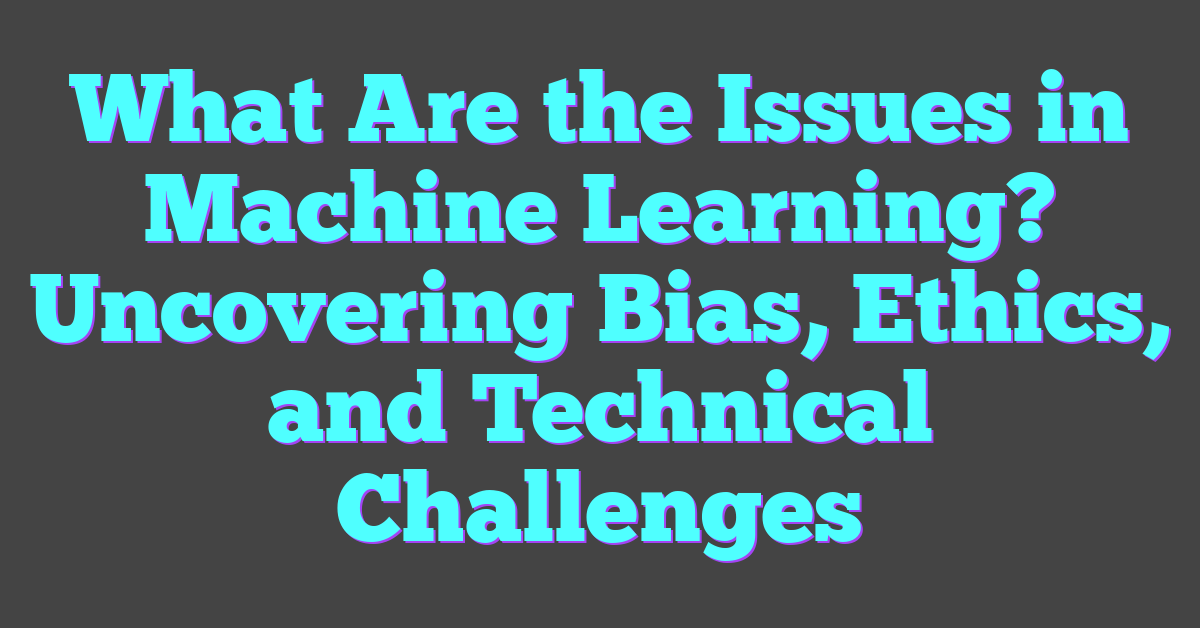Artificial Intelligence (AI) is rapidly transforming the way we live and work, making it crucial to establish clear policies that guide its development and use. An effective AI policy ensures that innovation aligns with ethical standards, societal values, and legal requirements. This balance helps prevent misuse while fostering trust and transparency.
Creating an example AI policy can serve as a blueprint for organizations and governments aiming to harness AI’s potential responsibly. By setting clear guidelines, stakeholders can navigate the complex landscape of AI technology, addressing concerns like data privacy, algorithmic bias, and accountability. This article explores the key elements of a robust AI policy, offering insights into how they can be implemented effectively.
Overview of Example AI Policy
An example AI policy outlines fundamental guidelines to govern AI development and usage. It ensures AI systems are ethical, trustworthy, and aligned with societal values.

Key Objectives and Goals
The primary objectives of an AI policy encompass ethical principles, safety measures, and regulatory compliance. They aim to:
- Promote Ethical AI: Ensure AI systems respect human rights and avoid biases (e.g., algorithmic biases).
- Enhance Safety: Prioritize the development of secure and reliable AI, mitigating risks related to operating AI technologies.
- Ensure Transparency: Foster transparent practices, making AI decisions explainable and understandable to users.
- Protect Privacy: Safeguard user data by implementing strict data handling and sharing practices.
- Accountability: Assign responsibility for AI actions, guaranteeing that entities remain answerable for their AI systems.
Major Provisions and Regulations
The example AI policy sets forth several provisions to standardize AI development and implementation. They include:
- Data Management: Establish data collection, usage, and storage practices that protect user privacy and uphold data integrity.
- Algorithmic Fairness and Non-Discrimination: Implement measures to ensure algorithms are unbiased and equitable across diverse user groups.
- Transparency and Explainability: Mandate that AI processes are transparent, with clear documentation available on decision-making mechanisms.
- Security Protocols: Enforce stringent security protocols to safeguard AI systems and data from cyber threats.
- Compliance and Enforcement: Outline compliance requirements and set up enforcement mechanisms to monitor and rectify policy violations.
These provisions aim to create a robust framework for AI’s ethical and responsible development.
Impact of Example AI Policy on Businesses
The Example AI Policy significantly influences how businesses operate, ensuring they use AI ethically and responsibly. It balances challenges with substantial opportunities for growth and innovation.
Compliance Challenges
Businesses face compliance challenges when implementing the Example AI Policy. Adhering to rigorous data privacy standards requires substantial changes to existing infrastructures. Companies must adopt advanced data management protocols to protect user information effectively. Ensuring algorithmic fairness demands thorough audits, which involve both technical and human resources. These audits help identify and mitigate biases in AI systems.
Organizations also need to establish clear transparency practices. Transparent communication of AI decision-making processes builds trust among users but necessitates new communication strategies and tools. Security protocols present additional layers of complexity. Businesses must protect AI systems from cyber threats, demanding continuous monitoring and updating security measures.
Benefits for Innovation and Growth
Despite these challenges, the Example AI Policy offers numerous benefits for innovation and growth. By promoting ethical AI, businesses can create more trustworthy products, enhancing their brand reputation. Ethical AI practices attract customers who prioritize data privacy and fairness.
Enhanced transparency and accountability provide insights into AI systems, fostering an environment of continuous improvement. With clear guidelines, businesses can innovate more confidently, knowing they comply with ethical standards. Innovation thrives when there’s a clear framework for experimentation and development.
Data management and algorithmic fairness place businesses at the forefront of technological advancements. Companies with robust data and unbiased algorithms outperform competitors relying on traditional methods. The policy supports sustainable growth by aligning AI development with societal values, ensuring businesses remain relevant in an evolving market.
Example AI Policy and Public Sector Engagement
Example AI policies play a pivotal role in public sector engagement, guiding governments and agencies to implement ethical and effective AI solutions.
Influence on Public Services
AI policies shape public services by improving efficiency and transparency. They help governments automate tasks such as processing benefits, analyzing data trends, or managing city infrastructure. For instance, AI-powered systems can identify patterns in healthcare data to allocate resources effectively, improving patient outcomes.
Properly implemented, these policies ensure that AI applications in public services respect citizens’ privacy and maintain fairness. For example, a policy might mandate that automated decision-making processes are explainable, ensuring people understand how decisions are made and can contest them if necessary.
Collaboration Mechanisms
Effective AI policies foster collaboration between the public and private sectors. They create frameworks for partnerships, encouraging knowledge sharing and innovation. For instance, a government might partner with a tech company to develop AI solutions tailored to public sector needs, such as predictive policing or traffic management systems.
These collaborations benefit both parties by leveraging the technological advancements of private companies with the public sector’s data resources and practical application scenarios. Policies ensure these collaborations are transparent and accountable, aligning with ethical standards while promoting innovation.
By emphasizing these aspects, governments can harness the full potential of AI, driving improvements in public services and building public trust.
Global Implications of the Example AI Policy
The example AI policy impacts various global dimensions, reflecting the growing need for universal standards in AI ethics and governance. These guidelines have far-reaching effects on international collaboration and technology development.
Comparisons with International Standards
The example AI policy aligns with established international standards like the EU’s General Data Protection Regulation (GDPR) and UNESCO’s AI Ethics guidelines. Both frameworks emphasize data privacy, transparency, and accountability. By mirroring these global standards, the example AI policy supports cross-border data flows and international partnerships in AI innovation.
Examples:
- The EU’s GDPR mandates user consent for data use, similar to the example AI policy’s transparency clause.
- UNESCO’s guidelines focus on fairness and non-discrimination, resonating with the policy’s emphasis on preventing algorithmic bias.
Lessons and Adaptations
Countries can learn from the example AI policy to refine their frameworks. For instance, Japan’s AI strategy emphasizes transparency and security, elements central to the example AI policy. These policies can adapt over time, reflecting technological advancements and societal needs.
Examples:
- The example AI policy’s focus on ethical AI development informs Brazil’s AI strategy, which increasingly prioritizes ethical considerations.
- South Korea’s AI policies incorporate aspects of privacy protection akin to those found in the example AI policy, ensuring sensitive data remains secure.
By aligning domestic regulations with the globally recognized example AI policy, nations enhance their AI governance, fostering innovation while safeguarding ethical standards.
Conclusion
Establishing clear AI policies is crucial for fostering innovation while ensuring ethical standards are upheld. The example AI policy serves as a valuable guide for businesses and governments alike, providing a framework that aligns with international standards. By adopting and adapting these guidelines, countries can enhance their AI governance and drive responsible growth in the AI sector. This approach not only addresses compliance challenges but also opens up new opportunities for innovation and global collaboration.
Frequently Asked Questions
What is the importance of establishing clear AI policies?
Clear AI policies are crucial for ensuring data privacy, reducing algorithmic bias, and defining accountability. They help build trustworthy AI systems that align with ethical values.
What are the main areas of focus for ethical AI development?
The main areas of focus are data privacy, algorithmic bias, and accountability. These aspects ensure that AI systems are fair, transparent, and respect user rights.
How does the example AI policy benefit businesses?
The example AI policy helps businesses by clarifying compliance requirements, fostering innovation, and supporting growth. It ensures that companies can develop AI technologies responsibly and ethically.
What are the global implications of AI policies?
Global AI policies, like the example outlined, align with international standards such as the EU’s GDPR and UNESCO’s AI Ethics guidelines. This helps countries enhance their AI governance while fostering innovation and ethical standards.
How can countries adapt the example AI policy?
Countries can learn from and adapt the example AI policy by aligning their domestic regulations with globally recognized standards. This approach helps improve AI governance and promotes ethical development.
Which countries have successfully adapted similar AI policies?
Countries like Japan and South Korea have adapted and refined their AI frameworks based on international guidelines. This alignment has enhanced their governance and innovation capabilities.
What challenges might businesses face in complying with AI policies?
Businesses may face challenges such as understanding complex regulations, implementing stringent data privacy measures, and ensuring algorithms are free from bias. However, adherence to these policies can ultimately benefit innovation and growth.




